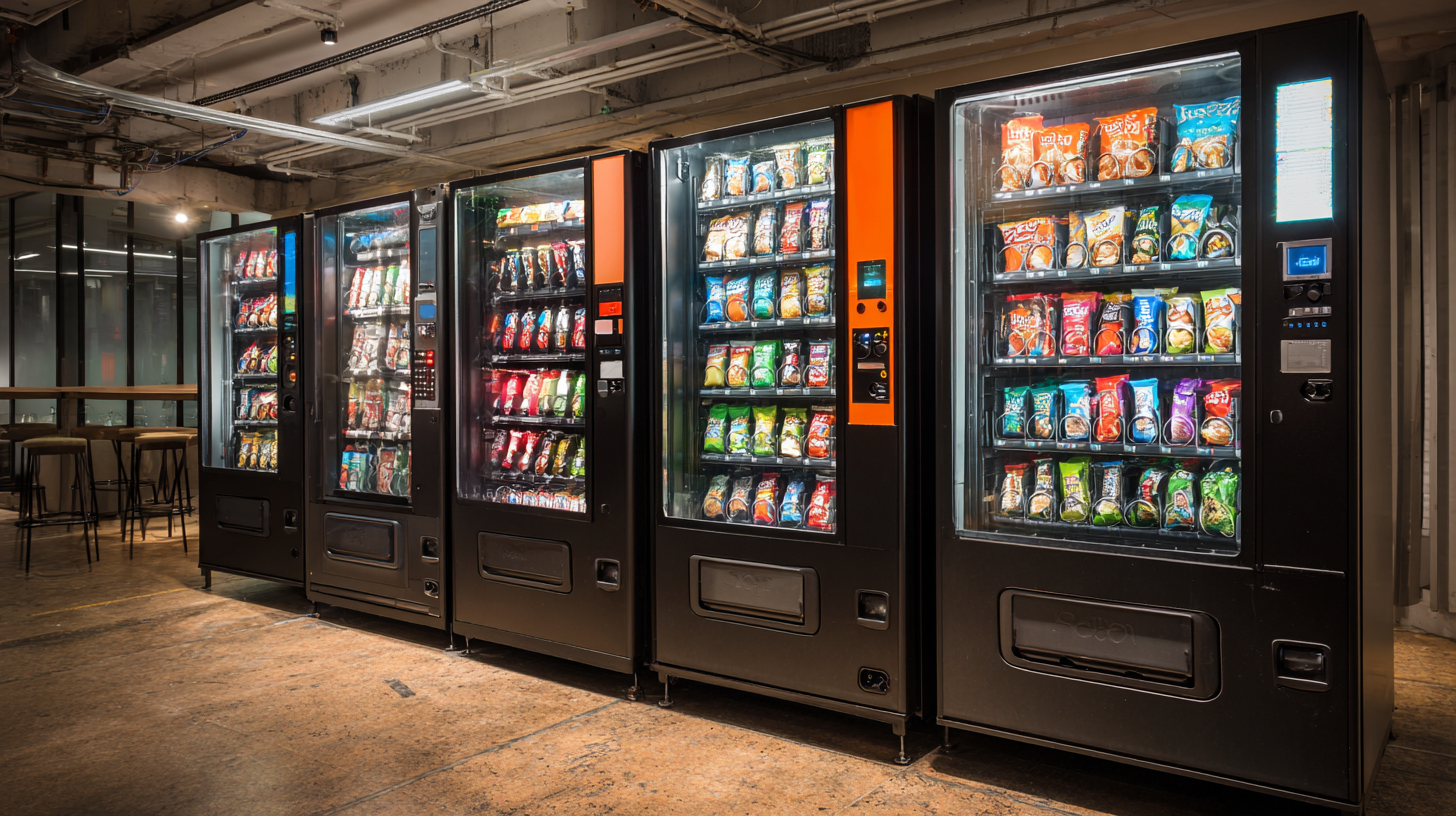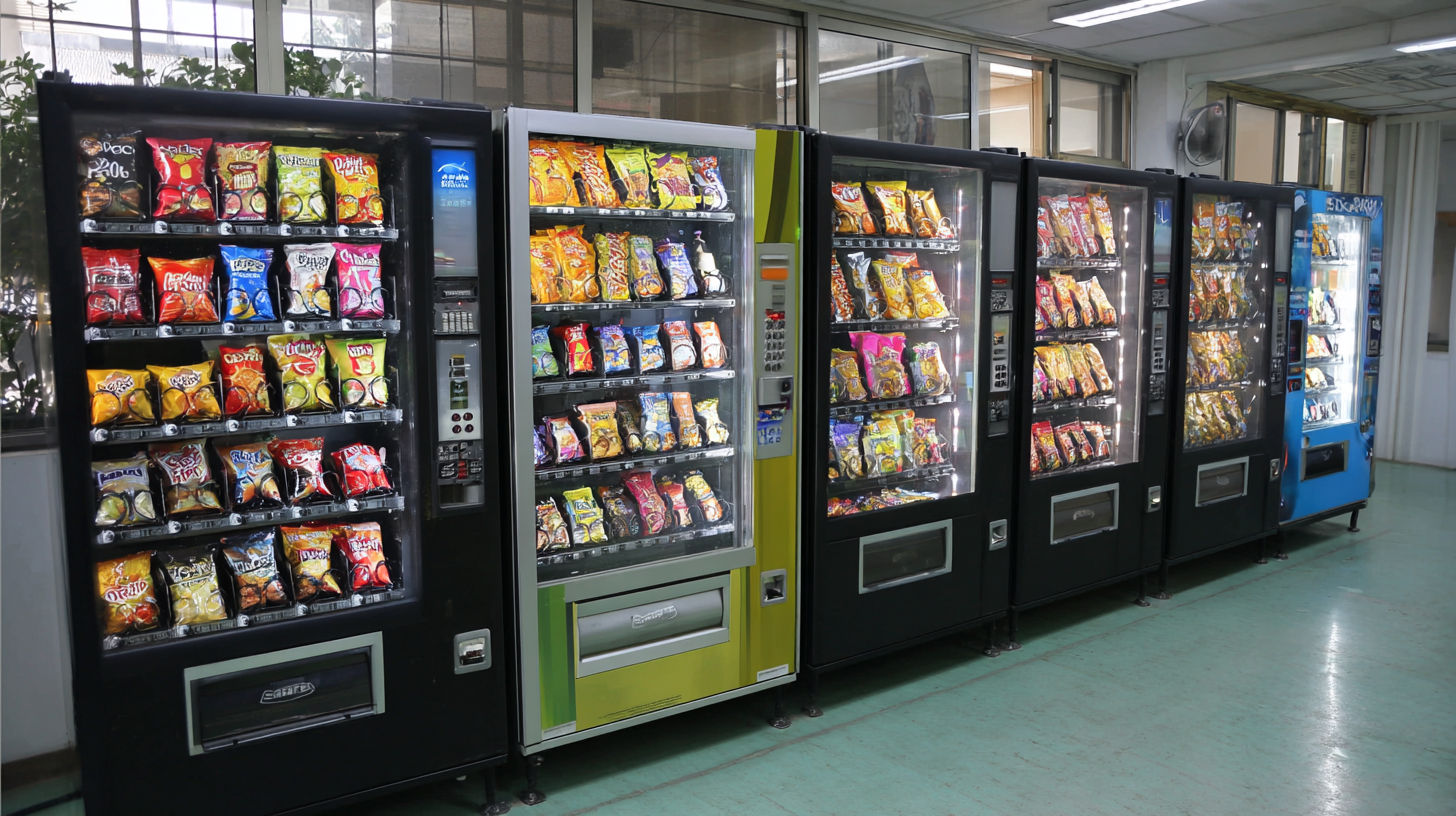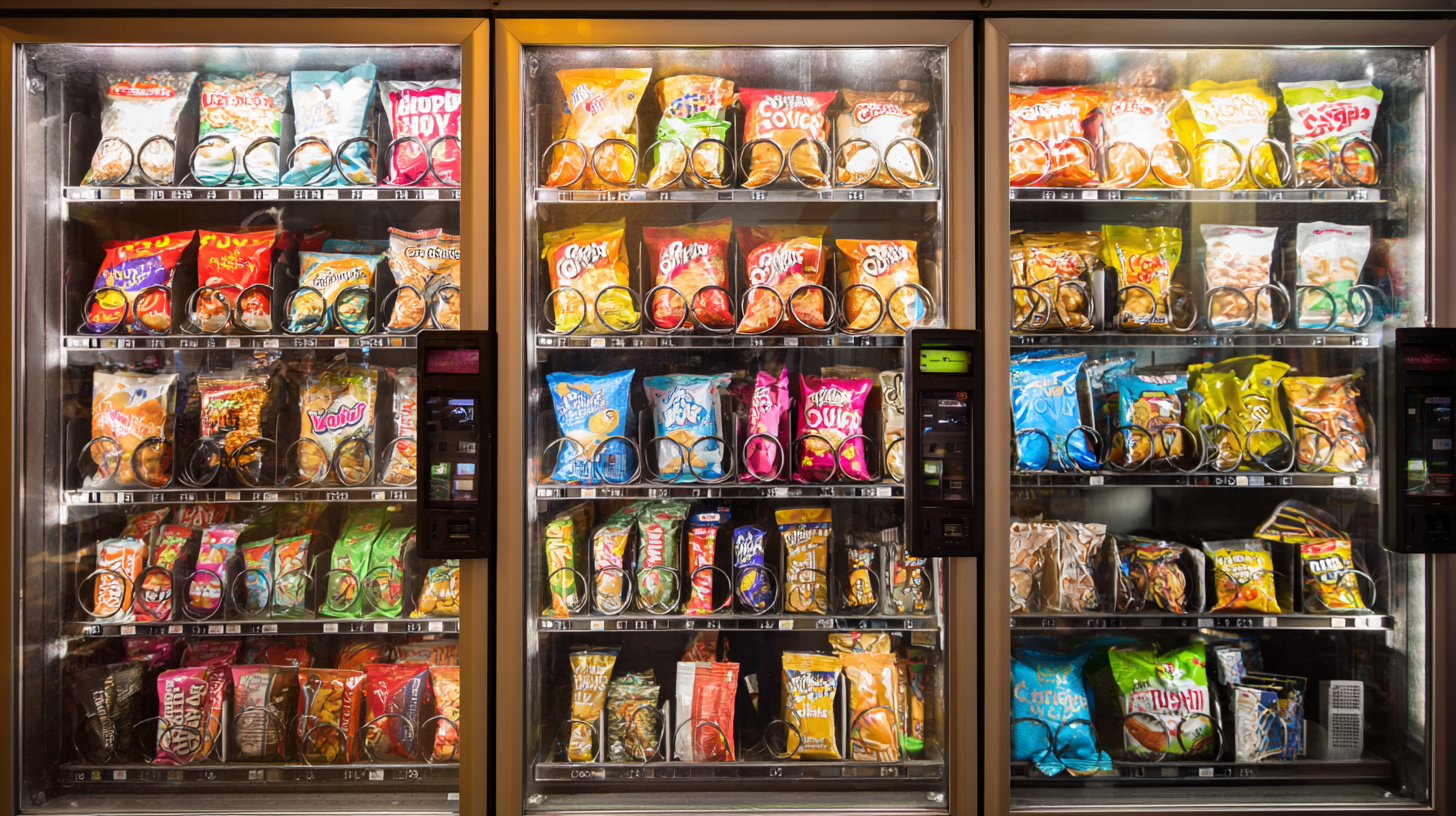As the global demand for convenient and healthy snack options continues to rise, the snack vending machine market is experiencing significant growth. According to a recent report by Grand View Research, the global vending machine market is expected to reach USD 146.94 billion by 2025, with snack vending machines playing a pivotal role in this expansion. Sourcing these machines from top manufacturers in China, known for their robust production capabilities and innovative technology, can greatly enhance your procurement strategy. However, navigating the complexities of import-export certifications is crucial for ensuring compliance and quality assurance. This guide will equip you with the knowledge needed to expertly navigate these certifications, helping you secure the best snack vending machine for your business while building trust and credibility in your operational processes.

When venturing into the snack vending machine market, understanding the significance of import and export certifications is crucial. These certifications not only ensure compliance with local and international standards but also guarantee that the products offered are safe and of high quality. According to a report by Grand View Research, the global vending machine market is expected to reach $27.3 billion by 2025, highlighting the need for industry stakeholders to navigate regulatory requirements effectively. Certification processes can vary significantly across regions, which means that operators must stay informed about the certifications necessary for importing snack products into their target markets.
Moreover, certifications can influence consumer trust and brand reputation. A survey conducted by the National Automatic Merchandising Association (NAMA) revealed that 75% of consumers are more likely to purchase from vending machines that display clear product information and certifications. This statistic underscores how essential it is for vending machine operators to ensure that their machines adhere to food safety standards and possess the necessary certifications. By prioritizing compliance, operators can not only enhance their market presence but also contribute to a safer, more reliable vending experience for consumers.
When considering the procurement of snack vending machines, understanding the necessary certifications is crucial for ensuring compliance and promoting food safety. Key certifications can include the Food Safety Management System (FSMS), which ensures that the machine and its offerings adhere to strict hygiene and safety standards. Additionally, certifications from organizations focused on food safety, such as the Hazard Analysis Critical Control Point (HACCP), help in establishing a framework for managing food safety risks effectively.
These certifications not only bolster consumer trust but also provide a competitive edge in the vending market. A well-certified vending machine signifies that operators prioritize quality and safety in their offerings. Moreover, being compliant with local and international standards can facilitate smoother import-export processes when acquiring machines or their food products, ultimately supporting businesses to thrive in a regulated environment. Thus, investing in the right certifications becomes a significant step toward ensuring the success of vending operations.

When setting up a snack vending machine business, obtaining the necessary import and export certifications is crucial for ensuring compliance with regulations and optimizing your operations. Start by researching the specific certifications required for your region, such as food safety and health regulations. Understanding the legal landscape can save you time and resources, allowing you to focus on curating a diverse snack selection for your vending machine.
Tip: Keep detailed records of all your transactions and communications with regulatory bodies. This can expedite the certification process and provide you with a reference in case of audits.
Once you're familiar with the requirements, prepare your application meticulously. Gather all required documents, including proof of compliance with food safety standards, as well as any applicable international certifications. Make sure to double-check your application before submission to avoid delays.
Tip: Establish a timeline for when you plan to submit your application and when you expect to receive your certifications. This helps you stay organized and ensures that you can launch your vending business on schedule.
| Certification Type | Description | Requirements | Processing Time | Cost |
|---|---|---|---|---|
| FDA Registration | Required for food manufacturers and distributors in the USA. | Business information, facility details, product listings. | 2-4 weeks | $500 |
| USDA Organic Certification | Certification for organic food products. | Organic materials list, system plan, inspections. | 6 months | $1,000 |
| Health Department Permit | Required for food vending operations. | Application form, inspection. | 1-2 weeks | $300 |
| Import License | Authorization to import goods into the country. | Tax ID, business registration, application form. | 2-3 weeks | $250 |
| Customs Bond | Guarantee for payment of duties to customs authorities. | Various financial documents. | Immediate upon application | $500+ |
Navigating the complex landscape of import-export certifications can be a daunting challenge for those looking to procure the best snack vending machines. One must grapple not only with local regulations but also with international standards that can vary significantly from country to country. For instance, according to recent reports, businesses exporting products to markets like Vietnam need to adhere to specific procedures under the Foreign Trade Policy 2023, which establishes guidelines that are crucial for smooth transactions.

However, barriers to entry persist. High costs associated with obtaining certifications, along with an intricate web of compliance requirements, can stifle competition and deter new entrants in the market. Understanding the unique challenges faced by various regions, such as Argentina's chronic inflation problems stemming from persistent public overspending, is vital. Additionally, the Philippine agriculture sector is also under significant strain, reflecting how economic factors can impact the import-export landscape. By identifying these obstacles and employing strategic planning, businesses can effectively navigate the certification process and thrive amidst the challenges presented in the global snack vending machine market.
In the snack vending industry, maintaining compliance with certification requirements is essential for ensuring safety and quality of products. Vendors need to navigate a variety of certifications relating to food handling, storage, and safety practices, all of which contribute to consumer trust and business viability. Best practices include thorough training in food safety protocols, understanding the regulatory landscape, and staying updated on industry standards. Participating in vendor safety training programs can enhance knowledge and skills, allowing operators to maintain high standards that meet both legal and consumer expectations.
Moreover, as the market for snack vending machines evolves, operating within the bounds of certification not only safeguards public health but can also serve as a competitive advantage. By demonstrating that your vending operations exceed basic compliance measures and embrace advanced industry practices, you can attract a health-conscious consumer base. Staying current with certifications not only ensures adherence to safety standards but also signifies a commitment to excellence, which can lead to potential increases in profitability. This proactive approach in managing certifications is key to thriving in the competitive landscape of the snack vending industry.
Serving the Vending Industry Since 1931
Vending.com is the “factory direct supplier” of new and factory “Certified” re-manufactured vending machines, including combo, snack, cold drink, coffee, cold and frozen food, and custom vending machines, all proudly manufactured in the U.S.A.
No need to “pay cash” for your equipment. Up to 100% financing can be provided by our company. Check out our short video to see why Vending.com is the #1 choice for profitable vending!
© 2025, www.actionguardvending.com. All rights reserved.
| Cookie | Duration | Description |
|---|---|---|
| cookielawinfo-checkbox-analytics | 11 months | This cookie is set by GDPR Cookie Consent plugin. The cookie is used to store the user consent for the cookies in the category "Analytics". |
| cookielawinfo-checkbox-functional | 11 months | The cookie is set by GDPR cookie consent to record the user consent for the cookies in the category "Functional". |
| cookielawinfo-checkbox-necessary | 11 months | This cookie is set by GDPR Cookie Consent plugin. The cookies is used to store the user consent for the cookies in the category "Necessary". |
| cookielawinfo-checkbox-others | 11 months | This cookie is set by GDPR Cookie Consent plugin. The cookie is used to store the user consent for the cookies in the category "Other. |
| cookielawinfo-checkbox-performance | 11 months | This cookie is set by GDPR Cookie Consent plugin. The cookie is used to store the user consent for the cookies in the category "Performance". |
| viewed_cookie_policy | 11 months | The cookie is set by the GDPR Cookie Consent plugin and is used to store whether or not user has consented to the use of cookies. It does not store any personal data. |